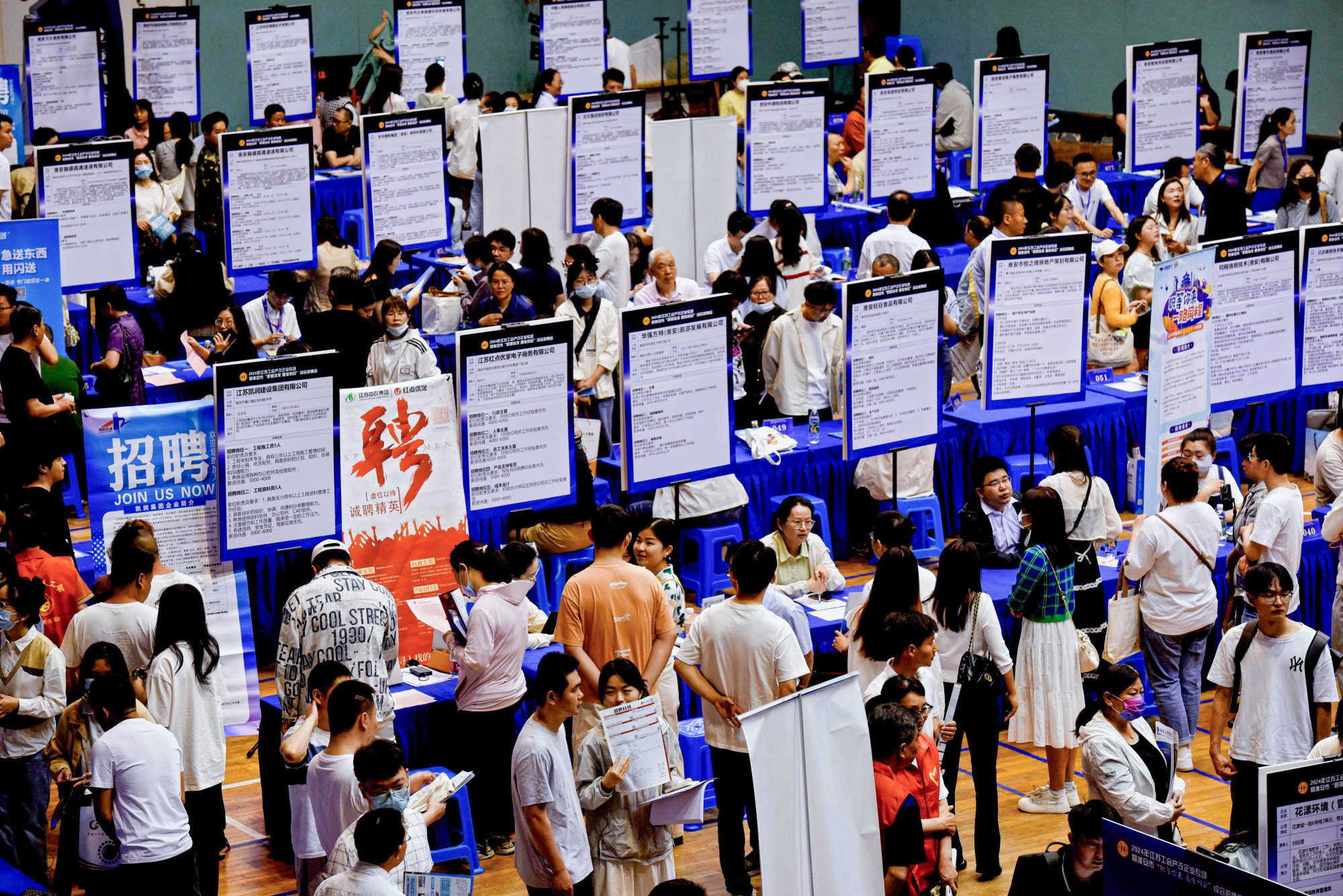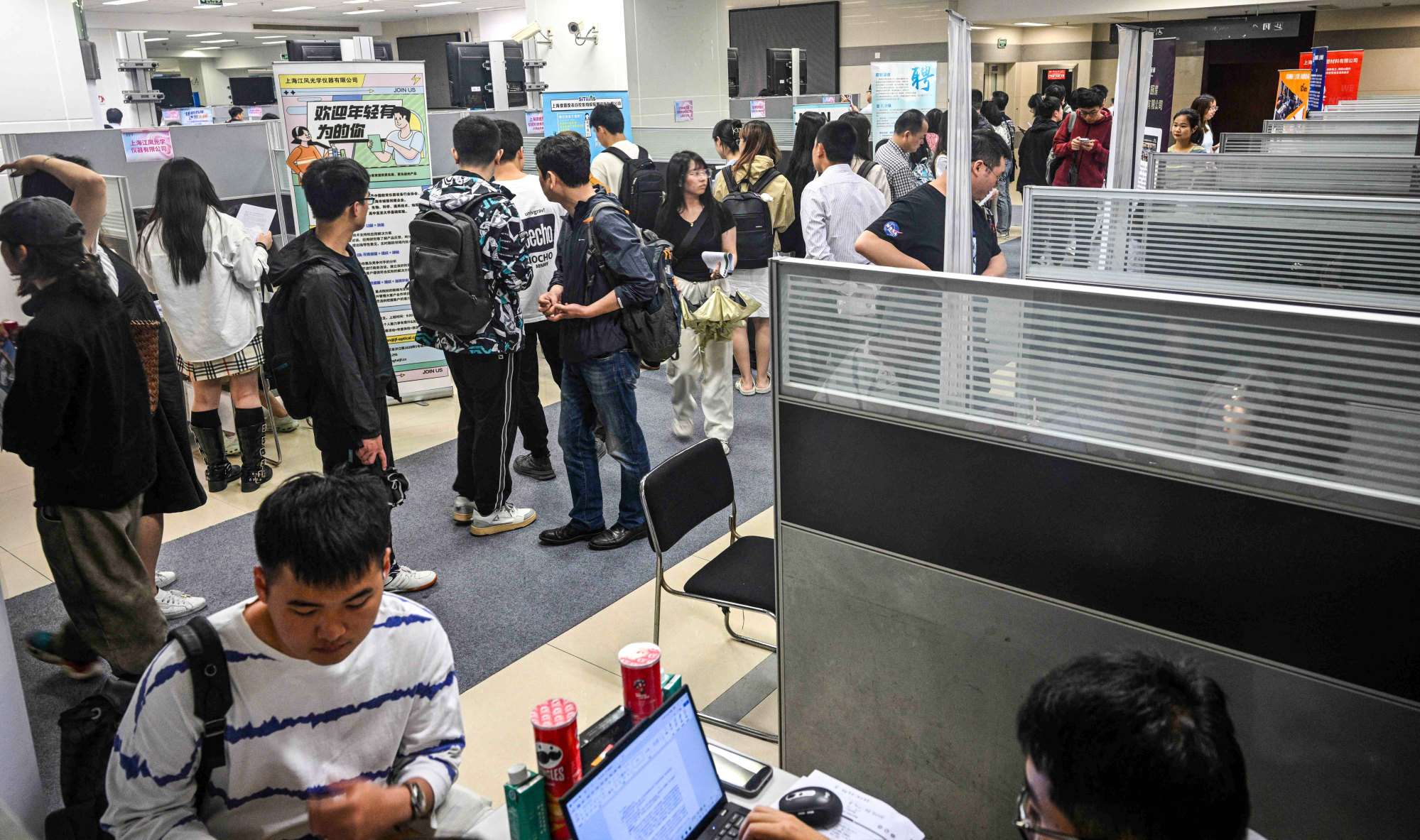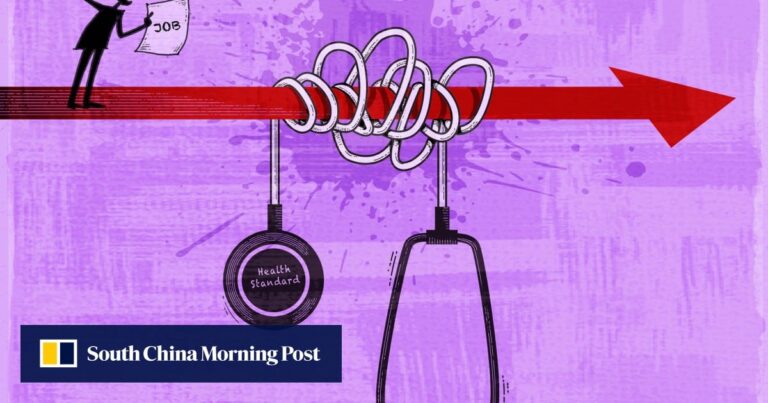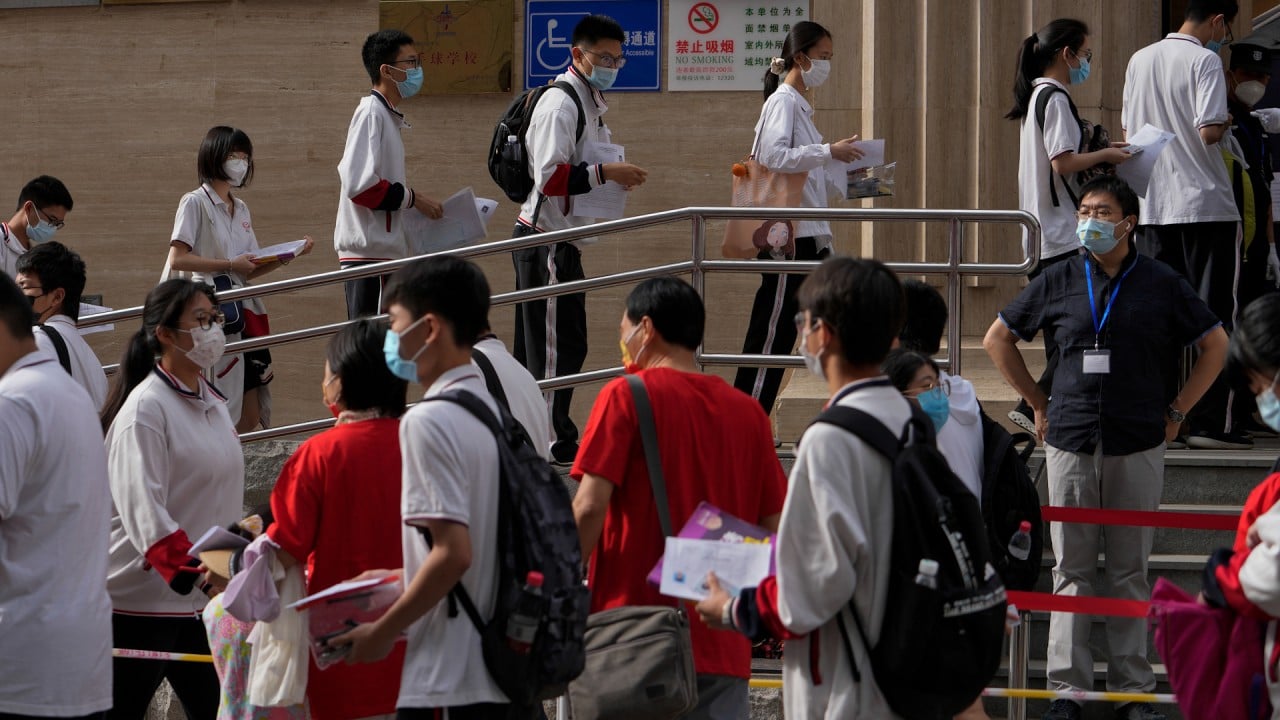These health tests are part of civil service standards established in 2004 and revised in 2016, and are intended to ensure a qualified workforce by excluding workers with certain health conditions. They are also used in many other industries, from education to finance, effectively expanding employment discrimination and legal and medical experts say need to be urgently overhauled to ensure a discrimination-free work environment.
The criteria state that HT is an autoimmune disease that often occurs in conjunction with other autoimmune diseases, and is “more prevalent in middle-aged and elderly people, but rare in younger people.” However, its prevalence has been increasing in recent years, and it now affects approximately 1% of the population.
A thyroid specialist in Beijing said HT is common but not life-threatening, and most people can manage it with regular medication. A thyroid specialist in Guangzhou added that the early stages of HT are often mild and asymptomatic, and it would be a “pity” if a job candidate was rejected because of the condition.
As both a brilliant medical student and a HT patient, Liang has learned a lot about HT and his condition through multiple medical checkups and training (a seven-year integrated bachelor’s and master’s degree program followed by two years of training at a top hospital in Guangzhou).
However, when she negotiated with the HR department at Xiamen Hospital of Traditional Chinese Medicine, she was told that “they were aware of the nature of the disease and although it would not affect normal life or work, they had to follow the policy. They could only act according to the policy and not go beyond it.”
A 27-year-old master’s graduate surnamed Wang also faced similar discrimination, saying he lost passion for his job after being unable to take up a teaching position due to his condition, polycystic kidney disease, which affects the kidneys.
“Graduation meant unemployment and I felt like I was being sent to prison at an age where I should have been shining and glowing. I want to ask myself, is it really an illness that’s hitting me or is it the rules?”
Chinese authorities have long recognized the problems with these rules.
China passed a law banning employment discrimination against people with infectious diseases in 2007, and in 2010 formally banned hepatitis B virus (HBV) testing, which had previously been a source of discrimination against patients with the disease. Since then, all local governments have lifted civil servant requirements that discriminated against HBV-positive people.

Li Zhongxia, a law professor at the China University of Political Science and Law (CUPL), sees the abolition of HBV testing as “a major step forward in protecting the rule of law and fundamental constitutional rights.”
Li was one of the participants at a forum held by the university in April to discuss the propriety of physical tests in civil service recruitment, where many experts called for the standards to be updated to reflect advances in medicine and technology.
From a constitutional perspective, the current provisions may be too broad and subject to too limited interpretation, he said, and a more nuanced approach is needed to balance individual rights and the public interest. For example, conditions such as high blood pressure, insomnia and HIV positive are on the disqualification list, but they do not necessarily mean that one cannot become a civil servant, Lee said.
Xu Guogang of the People’s Liberation Army General Hospital suggested at the forum that standards need to be updated regularly to keep up with medical and technological advances.
“[The standards should] “The focus should be on the actual impact on the ability to work, not just the presence of the disease,” Xu said, adding that it should be taken into account that some infectious diseases require strict control, while others can be managed with treatment.
In various media interviews, she claims that there are more than 50 types of disqualifying illnesses, many of which do not affect normal life or work, yet prevent prospective students and professionals from pursuing their desired careers.
According to Chinese media reports, in 2019 a 30-year-old man with high blood pressure was rejected for employment by the Guangzhou Municipal Public Works Bureau after it was determined his health issues might affect his ability to work long hours, and in 2020 a 28-year-old woman with epilepsy was rejected for employment by the Henan Provincial Health Commission because of her history of seizures.
Zhang Xiaoli, a lawyer representing HT clients who lost social work jobs last year, said she hoped the situation would change soon.
“Unreasonable standards should be adjusted. Specifically, chronic diseases that do not affect normal work performance, such as hypertension and polycystic kidney disease, should be removed from the ineligible category,” Zhang said.
In China, becoming a civil servant has traditionally been considered a prestigious and stable career path, and a civil service job comes with many benefits that are not common in the private sector, such as job security, social welfare, housing subsidies, vacation time and medical insurance.

The economic downturn has led to more people hoping to become civil servants: More than 1.7 million people applied for the 2024 civil service exam, 22,000 more than last year, according to state news agency Xinhua. But only about 39,600 will be selected.
In China, civil servants refer to those who work in government agencies at all levels, and other civil servants, such as teachers and researchers, are not classified as civil servants. However, since there are no specific regulations for other fields, it is common practice in different industries to refer to the health examination standards for civil servants.
A university graduate in Chongqing wrote in Xiaohongshu that her job offer from a major IT company was rescinded after she reported her HT diagnosis to the HR department. In her post, she questioned why this standard would affect private companies.
“These standards appear to be a template for all industries and professions,” another college graduate who was twice rejected by both the public and private education sectors said in a court filing. “Employment prospects are severely limited for those of us who inadvertently suffer from chronic, non-work-impairing illnesses and who have studied for decades without finding a place to thrive.”
Zhang said one of his clients, surnamed Zhou, lost his job as a social worker in Jiangsu province after failing a physical examination because he was diagnosed with a high fever, and sued the authorities for applying civil servant standards to a non-civil servant job. The client lost the case.
The court ruled that by registering for the exam, applicants are deemed to have accepted the recruitment requirements and agreed to undergo a physical examination in accordance with the civil service standards set out in the recruitment advertisement, Zhang said.
Job status was important to Liang, a traditional Chinese medicine doctor. She argued that the position she applied for is not considered a “civil service” in China and that her health condition is stable and won’t affect her job performance. She sued the hospital for workplace discrimination but lost the case in March.
“I still think it’s very unreasonable. They just fulfilled their obligation to notify. [in the ads]But they didn’t realise that their actual actions were already violating our employment rights,” Liang said.
This pattern and rationale is not uncommon in other similar rulings, according to Chen Bi, an associate professor of criminal law at CUPL. All the cases were administrative review and litigation cases, and none of the cases were found to have procedural flaws, he told a university forum in April.
However, Cheng Xizhong, a law professor at CUPL, pointed out that physical examination standards are not mandatory national standards, but regulatory documents with limited binding power, and suggested that in administrative reviews and litigation, review agencies and courts should examine the legality of the examination standards and their relevance to job requirements.
“In most cases, there is no strong correlation between a civil servant’s physical condition and their ability to perform their jobs. Except for certain jobs that require special physical abilities, using a person’s health condition as a hiring criterion is not justified,” Cheng told the forum.
Zhang hopes that the health examination standards for civil servants will no longer apply to non-civil servant positions, so that people with chronic illnesses will have more job opportunities.
“Otherwise, large numbers of people with chronic conditions will be excluded not only from civil service jobs, but also from employment opportunities in other public agencies and large public institutions.” [private] “For businesses, this is a big challenge,” Zhang said.
Liang eventually found another job at a private hospital in Xiamen that, while using official medical standards as a guide, assessed candidates based on actual job requirements rather than strictly adhering to guidelines. Liang said the outcome was a blessing, but unusual because “many other patients are still affected by the regulations.”


